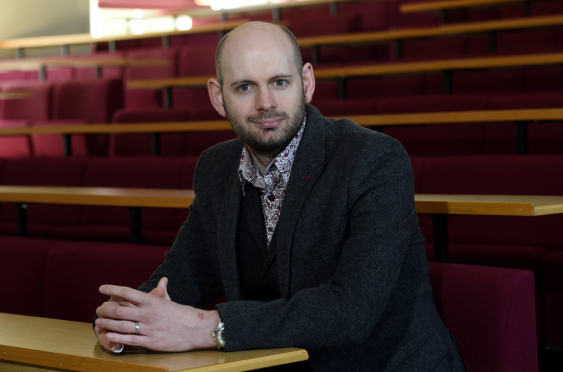An Aberdeen university lecturer who has experienced depression has spoken out against a recent BBC Panorama episode that investigated mental health.
Malcolm Harvey, a teaching fellow in politics, has raised fears that those with mental health issues could stop taking their medication after the episode “A Prescription For Murder” aired on Wednesday evening.
Mr Harvey, who has in the past been treated for depression, said the show was “irresponsible”.
In the broadcast, it was suggested that certain anti-depressants called selective serotonin reuptake inhibitors (SSRIs) could have been a factor leading to American student James Holmes carrying out the infamous Aurora mass shooting in 2012.
Mr Harvey said: “Lots of people take anti-depressants as a means of functioning relatively normally on a daily basis.
“To suggest that the drug they are taking may have caused someone to kill is incredibly irresponsible, and may make people stop taking it.
“Consequences for the individual concerned may be terrible – further severe depression, and, in certain cases, attempts to take their own lives.
“At a point when we’re starting to break down the stigmas attached to mental health illnesses and encouraging people to speak out and seek help, this was a huge backward step.
“If there had been evidence supporting it, I would have been less annoyed. But it was almost entirely speculative, and raised more questions than answers.”
A BBC spokeswoman said: “It is in the public interest to investigate the possible side-effects of SSRIs that could potentially affect a minority of people, and Panorama did so carefully and responsibly.
“Our journalism included new information about the number of reports to the Medical Healthcare products regulatory authority about reported side effects of SSRIs, as well as a range of voices in psychiatry in both the US and UK.
“It was also stressed clearly throughout the programme that these drugs are safe for the majority of users, and people should not change or stop taking medication without seeking medical advice first.”
